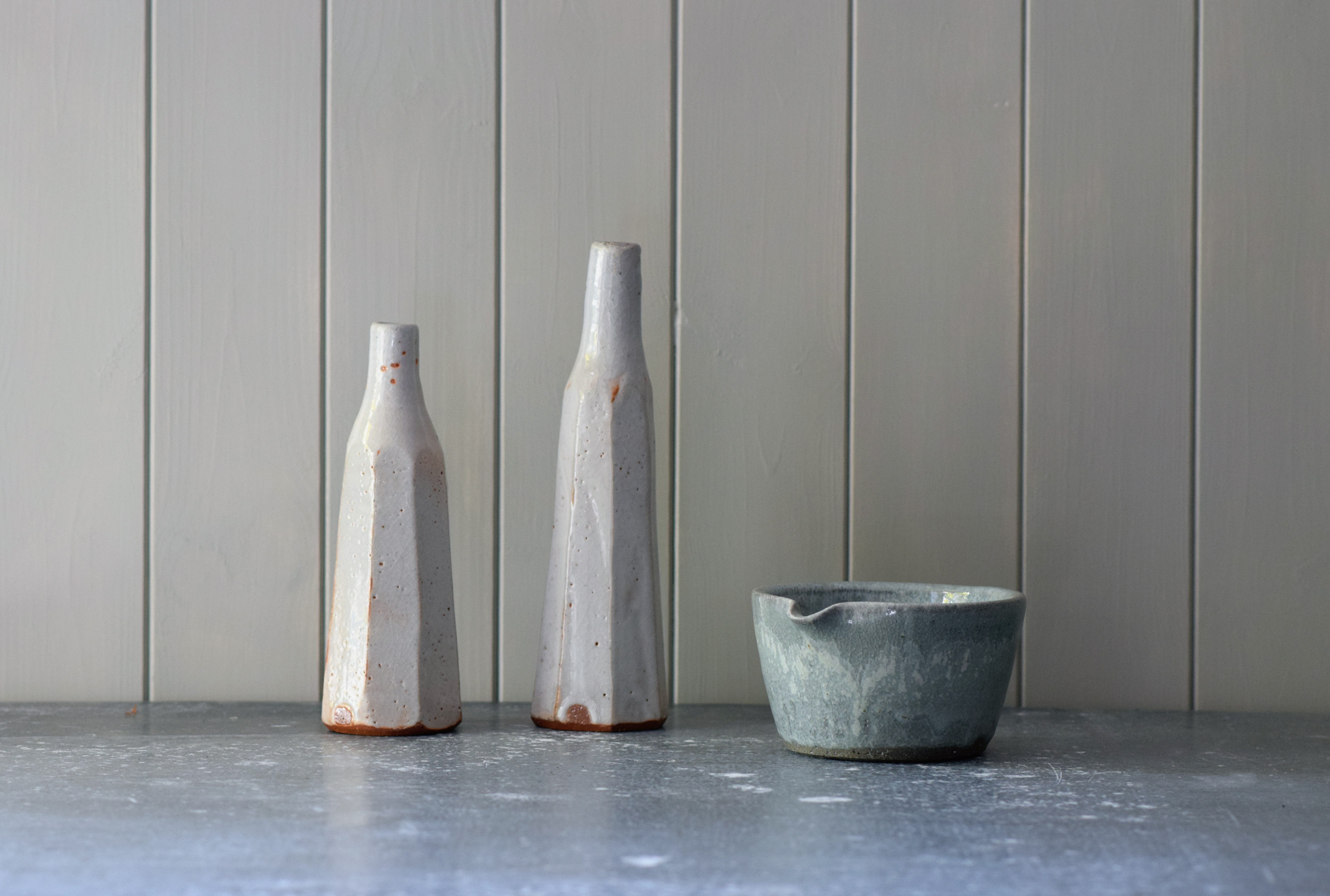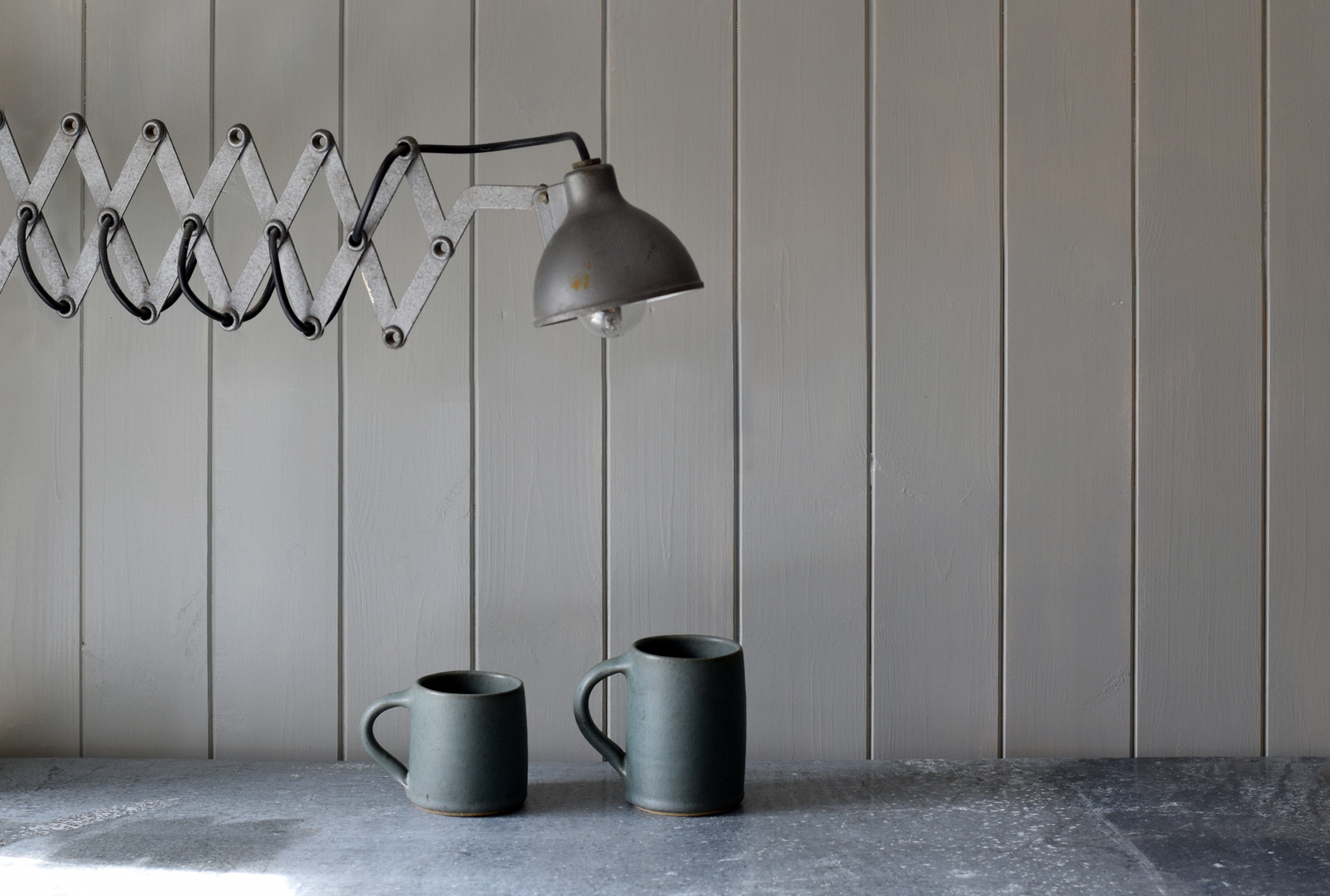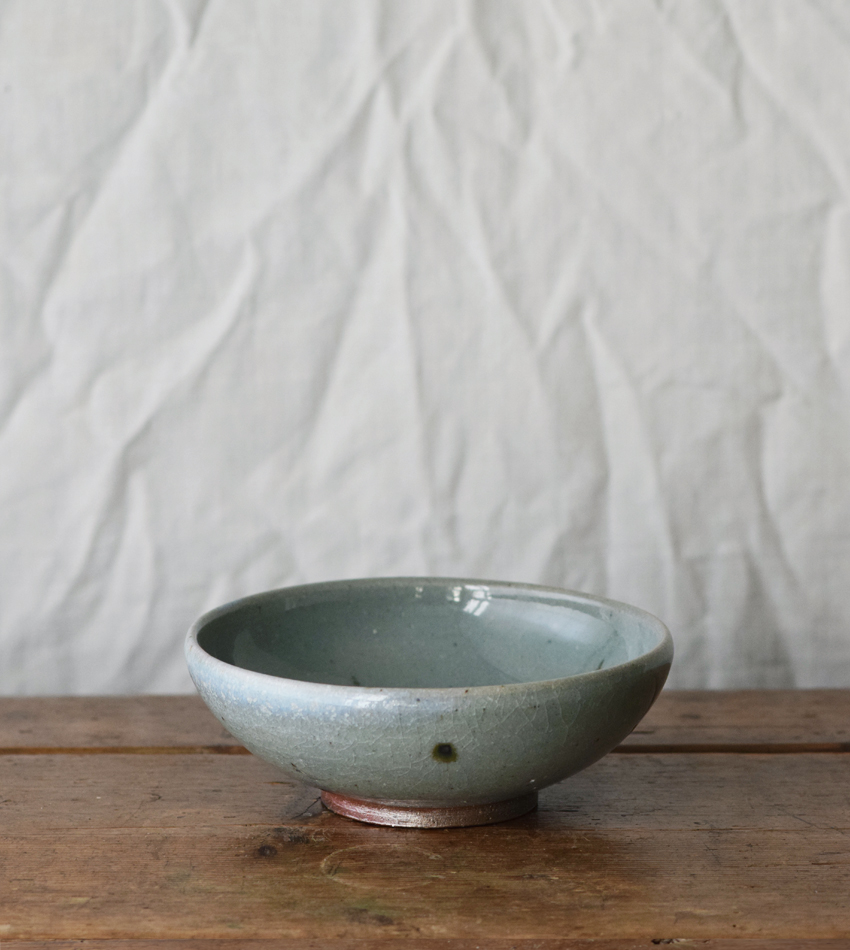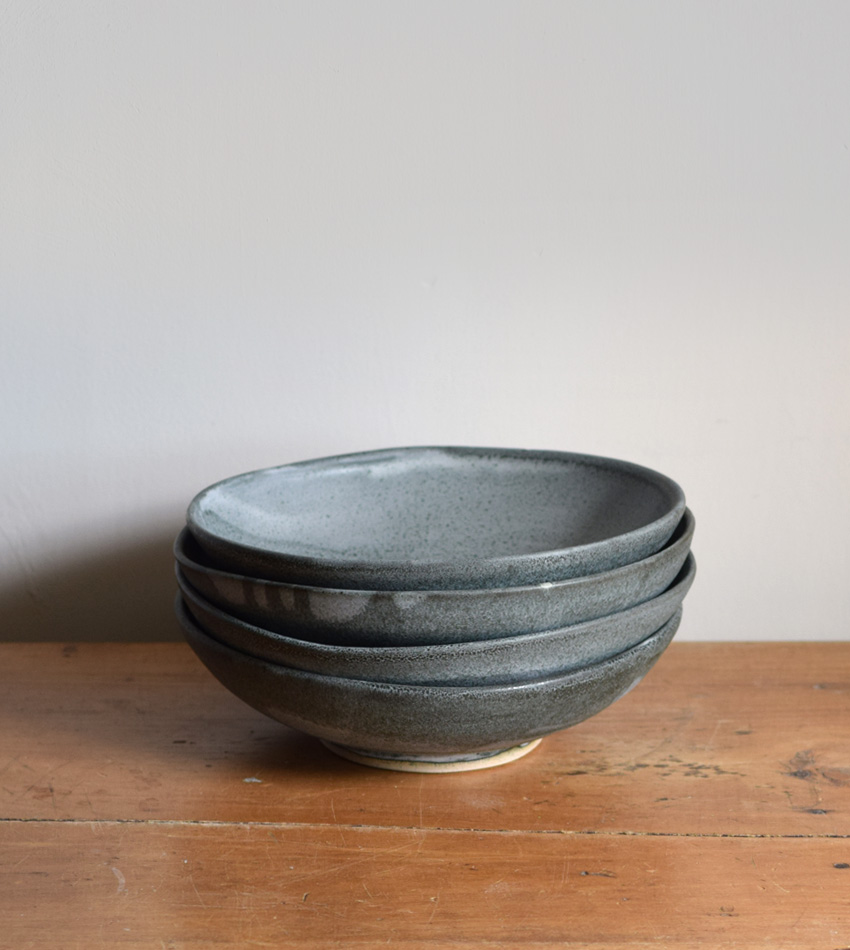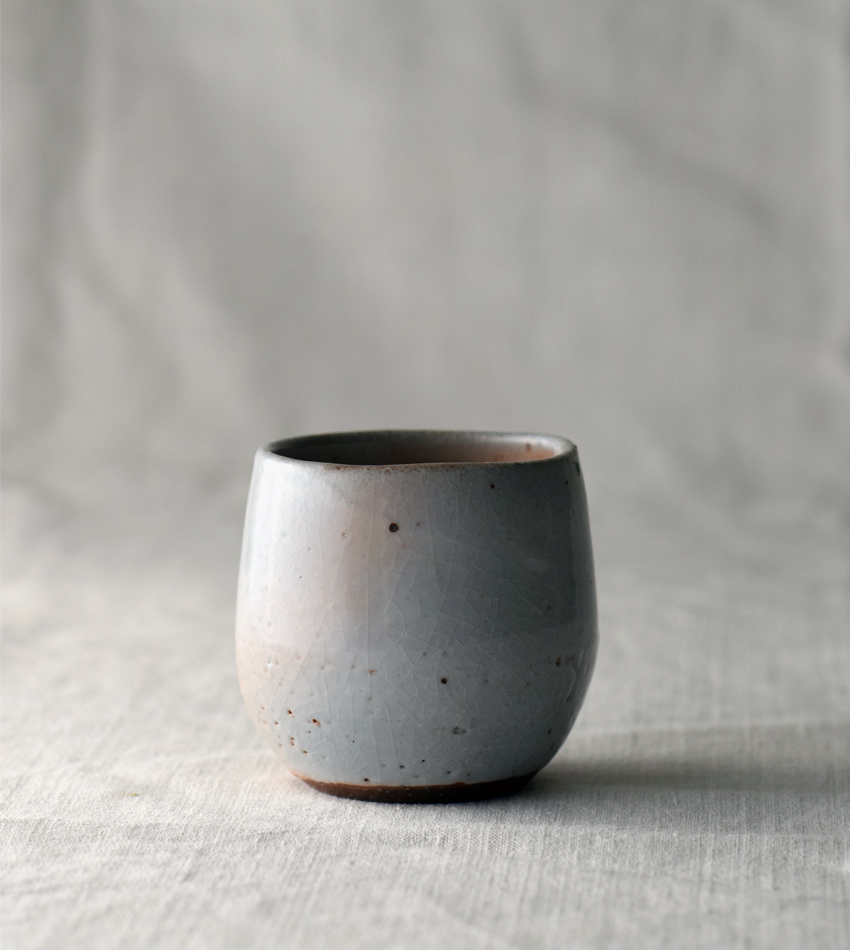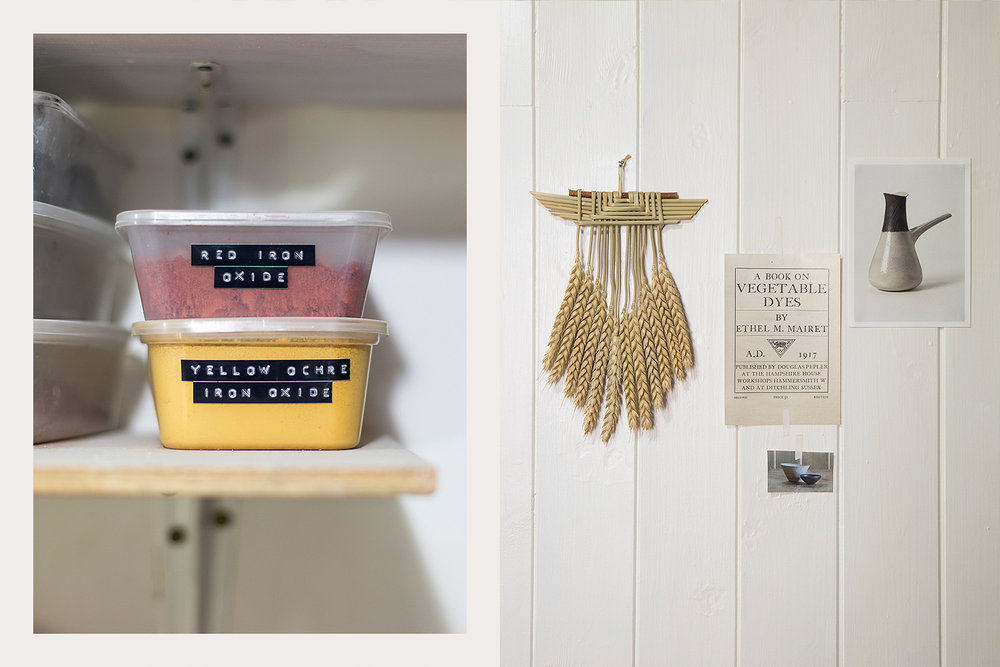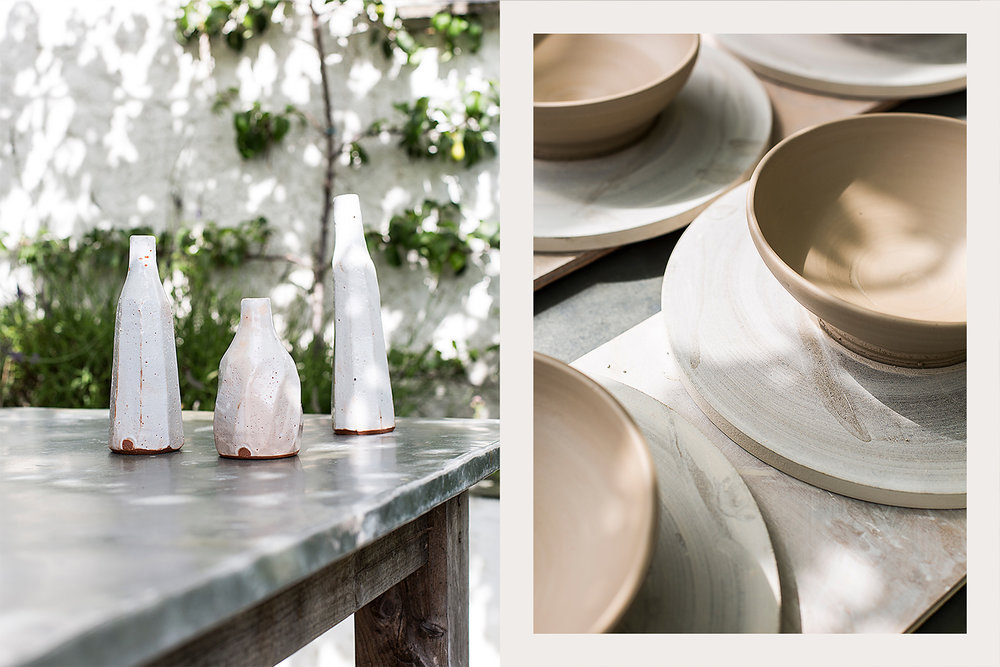Rebecca Proctor
A series meeting designers, creatives and makers in the world of craft. Craft takes many forms from products to processes, objects to original techniques, handcrafted materials to printed paper. We have a great appreciation and love of craft and will be sharing a series over the coming months of people working hard in this space. What inspires them, what motivates them, what drives them. Stay tuned as we delve into their processes and share the inner workings of some great modern-day makers.
We had great pleasure in chatting with Rebecca Proctor, founder and maker at Modern Craft Workshop. Based down on the beautiful Cornish Coastal town of Bude, Modern Craft Workshop boasts a series of unique and stunning pottery products, each with a natural beauty found only in truly crafted techniques. Rebecca’s approach to pottery goes beyond the item itself, focusing on the relationship with the space and moment it is made to serve. We were excited to learn more about how she ended up as a potter, the importance of trusting the process and how losing control can lead to some delightful results.
Hey Rebecca! Thanks for taking the time to chat to us. To kick-off, can you tell us a bit about yourself and what you do?
I make wheel-thrown pottery from my small workshop in North Cornwall. I often work for restaurants, and am lucky to have made tableware for some amazing chefs, but mostly I just love making pots for anyone who enjoys them.
Can you tell us more about where you find your inspiration and the process you go through to bringing your ideas to life?
My starting point for pottery is always the materials. I want to celebrate beautiful natural clays (many of which are mined locally) and hand mixed glazes. I also try to make pots that will enhance the food placed on them, so it’s not about them being highly decorated in themselves, it’s more about being quiet yet hopefully beautiful.
It’s clear that your work is inspired by the natural environment around you. How much of this needs consideration when creating new ideas or is it fully ingrained in your approach?
I don’t even think about it to be honest. I come from a very visual background - I studied art & design history, and worked as a design writer and trend forecaster in London for eight years, so I kind of have a lot of visual influences. But I’ve always loved natural materials and I suppose those early years were helpful in that they honed my eye and critical thoughts. Now I just make what I want to and if people see something in it, that’s great.
What equipment and techniques do you like to use? Are there any new-found ones you’d like to experiment with?
Most of my work is made on the wheel, using local Cornish clays, however I also do a small amount of hand building. It’s good to have an understanding of different pottery techniques as they can inform and support each other.
I also do a mix of wood and electric firing. I’m part of the Kigbeare Kiln team, a group of potters who have built and fire a large anagama style kiln under the guidance of Svend Bayer. I feel very lucky to be part of that project and the pots that come out always surprise and delight me.
We love the subtle natural tones in your work combined with an injection of vibrant rustic colours. How much are you able to plan these results versus relying on your process to deliver them?
The reason I do two types of firing is because they offer very different results. Electric firing is fairly reliable and to a certain extent, I know what will come out the kiln. Wood-firing is an altogether different beast with many unpredictable results. The type of protracted wood firings that we do at Kigbeare last for about five days and depend on an accumulation of ash. The wood ash melts on the pots and forms natural glazes. It’s a very elemental process, with often surprising results. I like the fact that you are in some ways losing control of the process and instead, collaborating with nature.
What project are you most proud of?
I actually think the entire project of being self-employed is something to be proud of. It takes a lot of discipline, resilience, hard work and multitasking to set up and run a small business. There are hundreds of decisions to make and at the same time you still have to produce your product/work. When people find out that I am a potter I imagine they think I spend a lot of time “pottering about”, but nothing could be further from the truth.
What are you working on now?
I have a couple of commissions for really exciting restaurants. I enjoy working with chefs because it adds a new perspective to things. We’re also getting ready to fire the wood kiln again so that’s always exciting.
What’s next for Modern Craft Workshop - any big plans up your sleeve?
I might be working with an exciting new stockist, but it’s not confirmed yet… And I’d like to update my own online shop more frequently. I plan to do monthly shop updates that are open for a week at a time.
Tell us something unexpected or memorable your work has led you to do or achieve?
The fact that I am a potter and live in Cornwall is kind of unexpected. It’s not what I expected to end up doing but I’m very happy with it.
“You can’t get anything done when there’s razzmatazz around to distract you.”
What’s your personal motto? It’s not exactly a motto but a wise older person once told me “you can’t get anything done when there’s razzmatazz around to distract you.” I laughed at the time, but now I think about it a lot.
3 top tips for anyone wanting to become a maker & creator?
1. If you have an idea, go for it. Don’t overthink it.
2. Results not excuses.
3. Don’t worry about things being perfect, you can always improve along the way.
GoodFromYou Rebecca
Web moderncraftworkshop.com
Insta @_rebeccaproctor
Email mail@moderncraftworkshop.com









